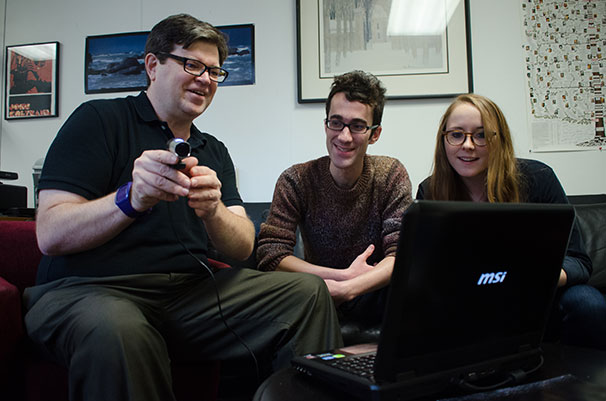
NYU, University of California, Berkley and University of Washington have been awarded $37.8 million to support data-intensive research for the next five years.
The Gordon & Betty Moore Foundation and Alfred P. Sloan Foundation awarded professors at these three universities a five-year grant to pursue research in large data analysis in specific fields such as astrophysics, genetics and economics.
Award winners were selected by the foundation out of 15 universities to receive the grant money.
Genny Biggs, a spokeswoman for the Gordon & Betty Moore Foundation, said the foundation seeks to accelerate the research of data science.
“Each of the partner universities has distinguished itself in recent years by pioneering new approaches to discovery in diverse fields, such as astronomy, biology, oceanography and sociology, through deep collaborations between researchers in these fields and in data science methodology fields, such as computer science, statistics and applied mathematics,” Biggs said.
Director of NYU Data Center for Data Science Yann LeCun, the professor involved at NYU, said doctoral, master’s and some undergraduate students will be involved in the collaboration, which could lead to the resolution of unanswered questions about the natural world.
“Answering the big scientific questions of our time, [such as] what is the universe made of, how does life work, how does the brain work, how can we understand human behavior and societies, will require extracting knowledge from large amounts of data with the help of computers,” LeCun said.
Ed Lazowska, the Bill & Melinda Gates chair of Computer Science and Engineering at the University of Washington, directs the data collaboration project at the University of Washington.
Lazowska said researchers now have access to larger amounts of data, but the challenge is to analyze and make sense of that data.
“Your competitive advantage is no longer just your ability to obtain the data,” Lazowska said. “It is your ability to extract knowledge from that data, to move from data to knowledge to action.”
University of Washington spokesman Vince Stricherz said the universities plan to establish a network for data science researchers to thrive.
“We hope to create a new generation of tools to enable data-intensive discovery across these fields,” Stricherz said.
Lazowska said some methods of research will work at one campus but not others.
“Having three top universities engaged in this together will be far more influential than if we proceeded independently,” Lazowska said.
Stricherz said the participants plan to involve more universities in the future.
“As just one example, we have long-standing deep collaborations with Alex Szalay at Johns Hopkins [University], who was a pioneer in ‘big data’ astronomy,” Stricherz said.
A version of this article appeared in the Monday, Nov. 25 print edition. Patrick Anker is a staff writer. Email him at [email protected].





















































































































































